Tezos Defendants Cry Foul as Lead Plaintiff With 'Serious Problems' Seeks Exit
Defense lawyers claim that lead plaintiff pursuing claims related to the Tezos initial coin offering has "a long and ugly history of racist, anti-Semitic, and homophobic statements directed at the parties and others" and that he's taken actions that could torpedo the lawsuit.
February 08, 2019 at 05:36 PM
5 minute read
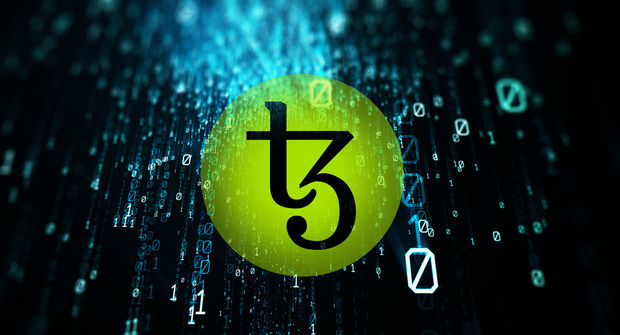
Lawyers for the organizers of the Tezos initial coin offering claim that lead plaintiff Arman Anvari, an attorney, has “a long and ugly history of racist, anti-Semitic, and homophobic statements directed at the parties and others” and that he's taken actions which could torpedo the lawsuit.
In court papers filed Thursday, lawyers at Cooley and Baker Marquart identified pseudonyms they believe Anvari used on social media sites that used anti-Semitic slurs in reference to Arthur and Kathleen Breitman, the husband-and-wife team behind Tezos, a digital currency platform under development.
Perhaps more problematic for the plaintiff's case, however, the Breitmans' lawyers claim Anvari offered to buy other investors out of their positions in the long-delayed initial coin offering at the price they paid for them—a fact they claim undercuts the position that investors like Anvari have been harmed in the initial coin offering. They also say he has posted online that blockchain-based tokens are not securities—a statement that runs counter to the entire theory underpinning the lawsuit.
The filing comes as HGT Law and LTL Attorneys, the lead counsel in the lawsuit, asked in late January to substitute Anvari with new lead plaintiff, and move forward with class certification in the ground-breaking case.
“Mr. Anvari has sought the court's permission to withdraw from the lawsuit, and he will cease to be involved with the suit at that point. None of the parties object to his withdrawal,” said lead plaintiff counsel Hung Ta in an email statement. “In the meantime, a number of other individuals have stepped forward to substitute in as lead plaintiff. We're keenly focused on assisting the court in this process and continuing to move the claims against Tezos forward for the benefit of our class members.”
Ta declined to answer a follow-up question about Anvari's alleged posts.
In an email statement, Anvari said that, though he no longer wanted to be involved in the litigation, he denied “the defendants' malicious and gratuitous attacks on my character and their claims that I am hateful toward any group of people.”
Tezos backers were hit with a series of class action lawsuits starting in November 2017 alleging that its blockbuster $232 million initial coin offering—where investors prepaid for digital tokens that were expected to trade on the Tezos blockchain, which became bogged down in technical delays—violated U.S. securities laws and misled investors.
U.S. District Judge Richard Seeborg last March tapped Anvari as lead plaintiff after the former associate at Latham & Watkins, Baker McKenzie, and Perkins Coie invested $264,007.50 worth of the ether cryptocurrency into the planned Tezos intial coin offering. Seeborg later let the claims that the Breitmans and Dynamic Ledger Solutions, the blockchain company they co-founded, ran afoul of U.S. securities laws move past a motion to dismiss.
Lawyers at Cooley and Baker Marquart weren't immediately available for comment Friday.
In Thursday's filing from the defendants, the Breitmans' lawyers argue that the plaintiffs shouldn't be allowed to substitute Anvari and plow forward toward class certification. The defense lawyers contend that there's a good chance that Anvari was aware of the ”Condition Terms” of the Tezos token offering, which specified that all Tezos-related disputes would be litigated in Switzerland under Swiss law.
“Furthermore, Anvari's internet posts also contained numerous racist, homophobic and anti-Semitic rants, some of them even directed at those involved in the Tezos project and other defendants,” wrote the defense lawyers, without fully detailing the alleged links between Anvari and the pseudonymous online posts they cite.
In particular, the defense lawyers point to a post in an exchange on the law school message board autoadmit.com, authored by someone using the handle ”.,.,.,,,.,,.,.,.,,.,.,.,.,.,,.,.,.,.”, who they allege is actually Anvari. According to the filing, that user wrote a post saying “F*CK the breitkikes,” in an apparent anti-Semitic reference to the Breitmans.
Anvari, in a declaration filed with the motion to substitute him out of the suit, didn't address the social media posts. He did, however, write: “Based on various legal arguments which defendants intend to make, however, I believe I will not be able to adequately represent the putative class, and have instructed my attorneys to seek my withdrawal as lead plaintiff.”
In Thursday's filing, the defense lawyers have asked Seeborg to re-examine the question of who should be lead plaintiff. They contend that one plaintiff that Anvari's lawyers have asked to substitute in is Australian and might not have standing to bring claims under U.S. securities laws. They also claim that they should be able to take discovery on whether the new proposed plaintiffs were aware of the ICO offerings' “Condition Terms,” which routed disputes to Switzerland.
Meanwhile, one of the plaintiffs, who was a runner-up in the competition for lead plaintiff in the case, is asking Seeborg to revisit his earlier decision.
“If Anvari cannot act as lead plaintiff, the PSLRA does not authorize his lawyers to select a replacement,” wrote counsel at Block & Leviton who represent an Australian company called Trigon Trading, which had the next-highest amount of alleged losses. “Instead, the court must look to the next most adequate plaintiff who filed a timely motion for appointment as lead plaintiff. That plaintiff is Trigon.”
The Block & Leviton lawyers in footnote say that their client ”can and will testify that it did not see the Contribution Terms before making its purchase.” Trigon's filing, however, did not address the defense arguments about the extraterritorial reach of the U.S. securities laws.
Block & Leviton's Joel Fleming and Jacob Fleming declined to comment beyond the court filings.
This content has been archived. It is available through our partners, LexisNexis® and Bloomberg Law.
To view this content, please continue to their sites.
Not a Lexis Subscriber?
Subscribe Now
Not a Bloomberg Law Subscriber?
Subscribe Now
NOT FOR REPRINT
© 2025 ALM Global, LLC, All Rights Reserved. Request academic re-use from www.copyright.com. All other uses, submit a request to [email protected]. For more information visit Asset & Logo Licensing.
You Might Like
View All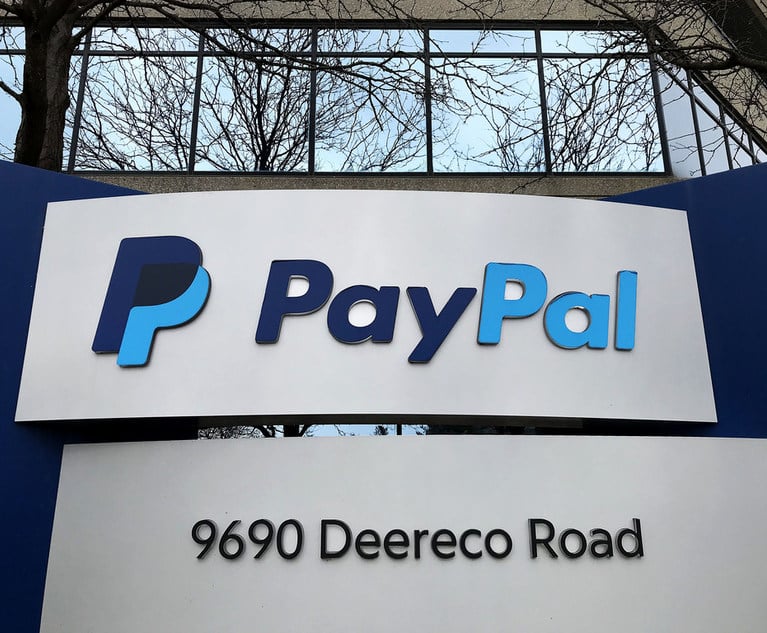
PayPal Faces New Round of Claims; This Time Alleging Its 'Honey' Browser Extension Cheated Consumers
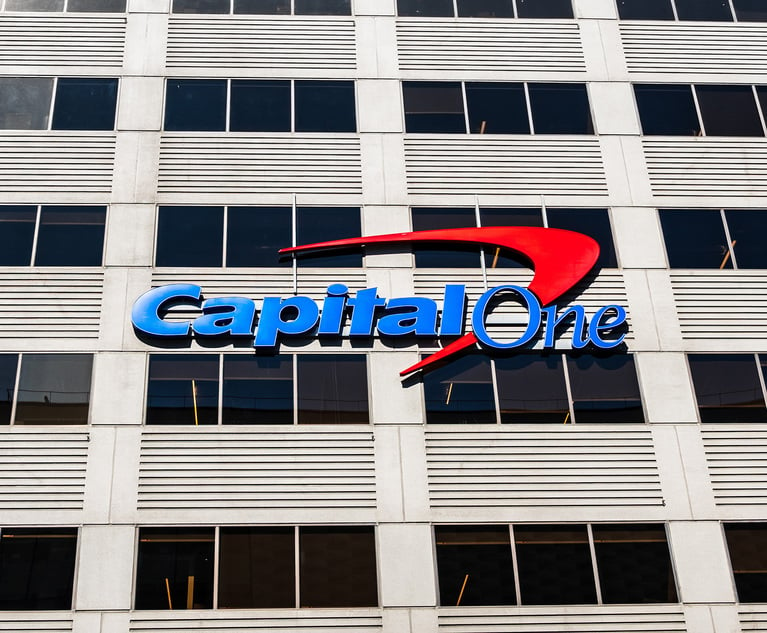
'Reverse Robin Hood': Capital One Swarmed With Class Actions Alleging Theft of Influencer Commissions in January
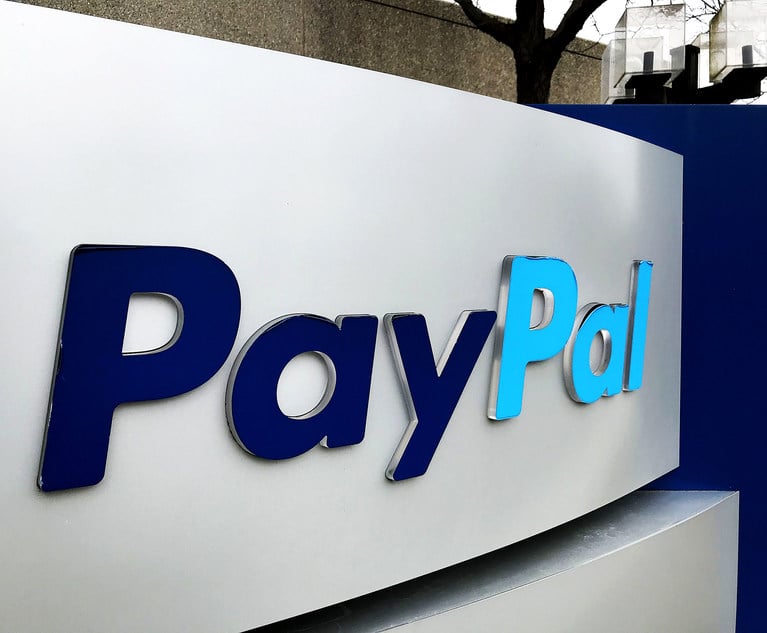
'It's Not Going to Be Pretty': PayPal, Capital One Face Novel Class Actions Over 'Poaching' Commissions Owed Influencers
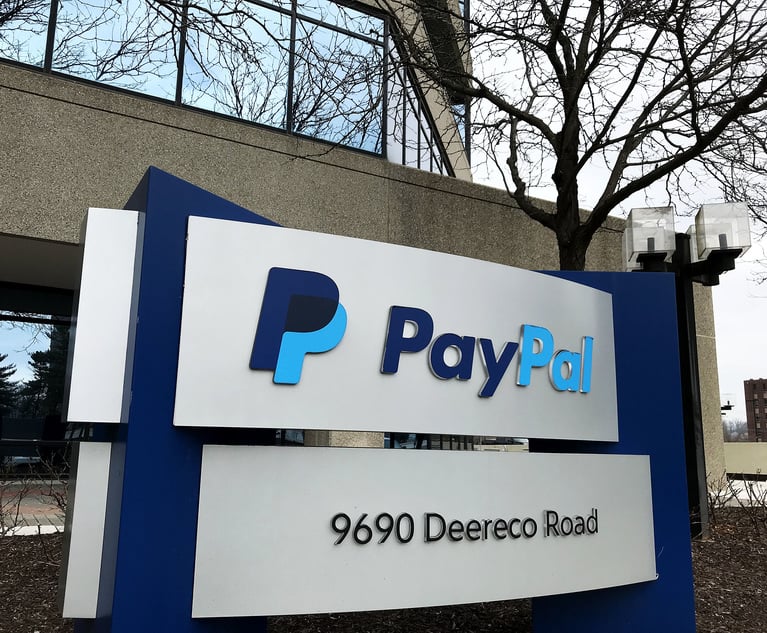
'Biggest Influencer Scam of All Time'?: PayPal Accused of Poaching Commissions Via Its 'Honey' Browser Extension
Trending Stories
- 1Varsity Brands Lures Aboard Keurig Dr. Pepper Legal Chief
- 2Federal Judge Warns of 'Serious Sanctions' on FDIC Over Document Retention
- 3Meet the Former NFL Player Now Back at Vinson & Elkins
- 4Inside Track: Cooley's Modest Proposal to Make Executives Safer
- 5Justified Termination Does Not Bar Associate Attorney From Unemployment Benefits, State Appellate Court Rules
Who Got The Work
J. Brugh Lower of Gibbons has entered an appearance for industrial equipment supplier Devco Corporation in a pending trademark infringement lawsuit. The suit, accusing the defendant of selling knock-off Graco products, was filed Dec. 18 in New Jersey District Court by Rivkin Radler on behalf of Graco Inc. and Graco Minnesota. The case, assigned to U.S. District Judge Zahid N. Quraishi, is 3:24-cv-11294, Graco Inc. et al v. Devco Corporation.
Who Got The Work
Rebecca Maller-Stein and Kent A. Yalowitz of Arnold & Porter Kaye Scholer have entered their appearances for Hanaco Venture Capital and its executives, Lior Prosor and David Frankel, in a pending securities lawsuit. The action, filed on Dec. 24 in New York Southern District Court by Zell, Aron & Co. on behalf of Goldeneye Advisors, accuses the defendants of negligently and fraudulently managing the plaintiff's $1 million investment. The case, assigned to U.S. District Judge Vernon S. Broderick, is 1:24-cv-09918, Goldeneye Advisors, LLC v. Hanaco Venture Capital, Ltd. et al.
Who Got The Work
Attorneys from A&O Shearman has stepped in as defense counsel for Toronto-Dominion Bank and other defendants in a pending securities class action. The suit, filed Dec. 11 in New York Southern District Court by Bleichmar Fonti & Auld, accuses the defendants of concealing the bank's 'pervasive' deficiencies in regards to its compliance with the Bank Secrecy Act and the quality of its anti-money laundering controls. The case, assigned to U.S. District Judge Arun Subramanian, is 1:24-cv-09445, Gonzalez v. The Toronto-Dominion Bank et al.
Who Got The Work
Crown Castle International, a Pennsylvania company providing shared communications infrastructure, has turned to Luke D. Wolf of Gordon Rees Scully Mansukhani to fend off a pending breach-of-contract lawsuit. The court action, filed Nov. 25 in Michigan Eastern District Court by Hooper Hathaway PC on behalf of The Town Residences LLC, accuses Crown Castle of failing to transfer approximately $30,000 in utility payments from T-Mobile in breach of a roof-top lease and assignment agreement. The case, assigned to U.S. District Judge Susan K. Declercq, is 2:24-cv-13131, The Town Residences LLC v. T-Mobile US, Inc. et al.
Who Got The Work
Wilfred P. Coronato and Daniel M. Schwartz of McCarter & English have stepped in as defense counsel to Electrolux Home Products Inc. in a pending product liability lawsuit. The court action, filed Nov. 26 in New York Eastern District Court by Poulos Lopiccolo PC and Nagel Rice LLP on behalf of David Stern, alleges that the defendant's refrigerators’ drawers and shelving repeatedly break and fall apart within months after purchase. The case, assigned to U.S. District Judge Joan M. Azrack, is 2:24-cv-08204, Stern v. Electrolux Home Products, Inc.
Featured Firms
Law Offices of Gary Martin Hays & Associates, P.C.
(470) 294-1674
Law Offices of Mark E. Salomone
(857) 444-6468
Smith & Hassler
(713) 739-1250






